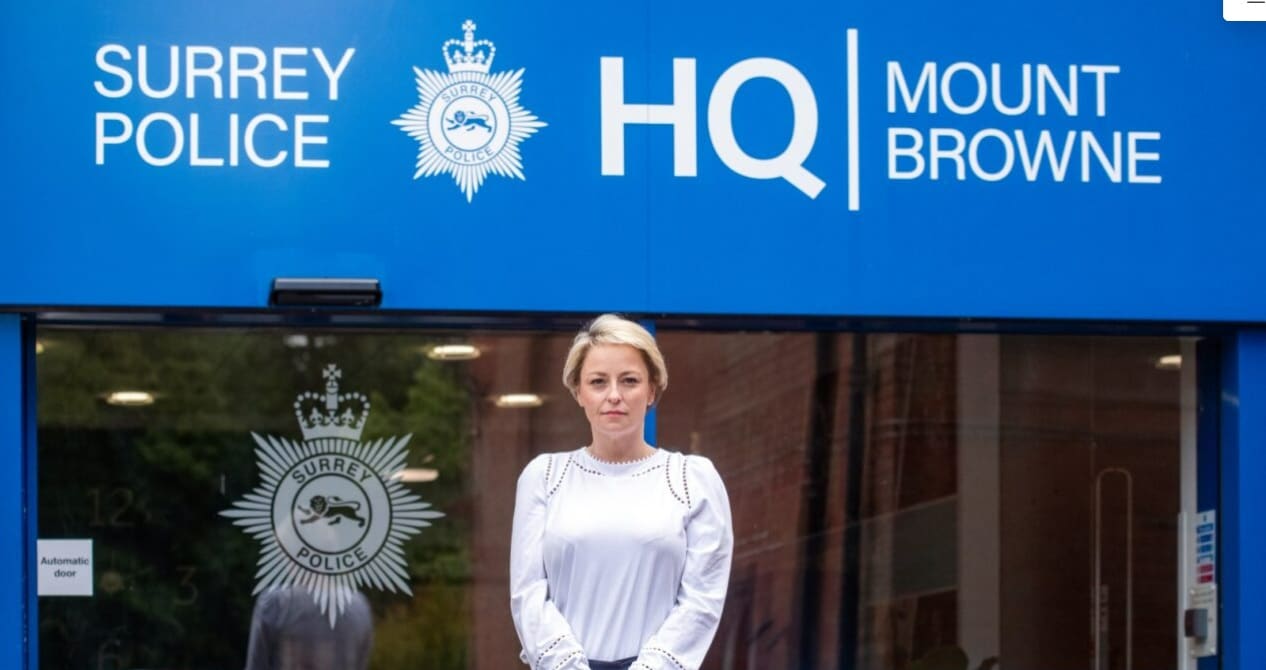Financial Context
Prudent financial management is one of the key foundations of any organisation. As the PCC it is my responsibility to ensure that the Force not only has the resources it needs for the current year but is also financially sustainable beyond.
This means that rather than simply taking an expedient decision now, I must weigh this up against the longer-term financial implications of that decision for the Force.
As the PCC I have overall responsibility for the finances of the PCC Group, which comprises both the Force and my office. This includes setting the overall budget for the group and the level of council tax required to pay for it.
In reality, I give almost 99 per cent of the money I receive from Government and residents to the Chief Constable for the delivery of policing services across the county.
Of the remaining 1 per cent, just over half is used by my office to commission services to support victims of crime and community safety initiatives, with the remainder being used to support me in my statutory role which includes scrutiny of the Force, policy development, audit and engagement with residents.
Looking back to 2023/24
During the year I received regular updates on the financial performance of the Force to ensure that Chief Constable’s expenditure was in line with the budget I had delegated to him.
I also monitored my own office to ensure it remained within its budget.
In February 2023, I approved a revenue budget of £288.5m for the Group. Over 80 per cent of the budget was used on staffing and related costs, with the remainder on supplies and services such as forensics, IT, repairs, fuel, uniforms and vehicles.
As a result of an intensive recruitment campaign, the Force managed to recruit enough officers to meet its Uplift target.
However, Police staff roles, which include Police Community Support Officers (PCSOs), still experienced a high level of vacancies as demand within the local employment market showed no sign of easing.
The budget included a revenue contribution to purchase assets, such as vehicles, as these are not funded by government and there were increased costs in areas such as forensics and estates – although this was offset by savings in some supplier contracts.
The budget also included a savings requirement of £1.6m which was all successfully delivered in year.
Taking all these things into account, as of March 31 2024 the Surrey Police Group revenue budget was £0.2m underspent – equivalent to 0.1 per cent.
Capital expenditure for the year was underspent by £7m mainly due to delays in purchasing new vehicles coupled with several estates and transformation projects crossing into the subsequent year.
Looking forward to 2024/25
In February of this year I set a 2024/25 budget of £309.7m, representing an increase of 7 per cent on the previous year.
Two-thirds of the increase was due to pay increases for officers and staff, with the remainder required to cover cost increases due to inflation.
Although the government funded some of the increase in costs, there was an expectation that a portion of this would be covered by council taxpayers and so, with regret, I took the decision to increase council tax rather than ask the Force to find additional savings on top of the £3.8m already included within the budget.
The Chief Constable was very clear with me that he needed this additional funding if he was to deliver on his vision for the Force and I will be holding him to account on its delivery during the coming year.
Looking beyond 2024/25
I have a duty to residents to ensure that the Force can continue to provide services to protect them, and for that to happen it has to be financially sustainable.
The Medium-Term Financial Forecast (MTFF) is one of the key planning tools that helps identify available resources and options for delivery of my Police and Crime Plan and the National Strategic Policing Requirements.
The MTFF indicates that savings of over £18m are required over the next four years.
Surrey is looking at several ways to do this, including:
- Investment in technology to deliver efficiencies in processes – such as cloud storage of video evidence;
- Working with partners to deliver faster outcomes;
- Joint procurement with other police forces and public bodies to drive down costs in areas such as uniforms, vehicles and insurance;
- Tools to allow agile working to reduce the size of our estate and enable staff to work more efficiently from remote locations;
- Vehicle tracking to optimise use of the fleet;
- Review of support services to drive efficiencies;
- Redevelopment of the Mount Browne Headquarters to deliver operating cost savings and a reduced carbon footprint, and to ensure facilities can meet the demands of 21st century policing.
These and other initiatives are unlikely to meet all the savings required, especially as this comes on top of the £86m of savings already delivered over the last 14 years, and so further work is required to identify additional opportunities.
There can also naturally be instances of unplanned expenditure, such as a large operation or national cost increases, which need to be funded. In addition, large capital investments must be spread over several years.
For this reason, I hold on behalf of the Force a prudent level of financial reserves, equivalent to around 12 per cent of the annual budget of which two-thirds is earmarked for particular projects.
The level of reserves I hold is lower than most other forces as I have taken the decision that it is preferable to give as much money as possible to delivering frontline services.
There is however no legal mechanism for the Force to access money quickly in the event of a one-off major operation or cost increase.
Hence if no reserves were held, expenditure would need to be reduced immediately to balance the budget, thereby putting at risk the very services residents and I value the most.
Like most public services Surrey Police does have some financial challenges ahead.
However, I have every confidence that with the work the Chief Constable and his team are doing these can addressed without impacting the frontline.
See more information about Surrey Police finances.
Latest News
Commissioner and Deputy share winning artwork from their annual Christmas card competition

Lisa Townsend and Ellie Vesey-Thompson have revealed the winner of their annual Christmas card competition.
New Surrey Police base set for Redhill next year, Commissioner announces

Commissioner Lisa Townsend has hailed a "bright future for policing" after the purchase of a site in Redhill.
Would you pay a little extra council tax to support the fight against crime? Have your say on police funding!

The Commissioner is asking Surrey residents whether they'd be prepared to pay around £1 extra a month in council tax.